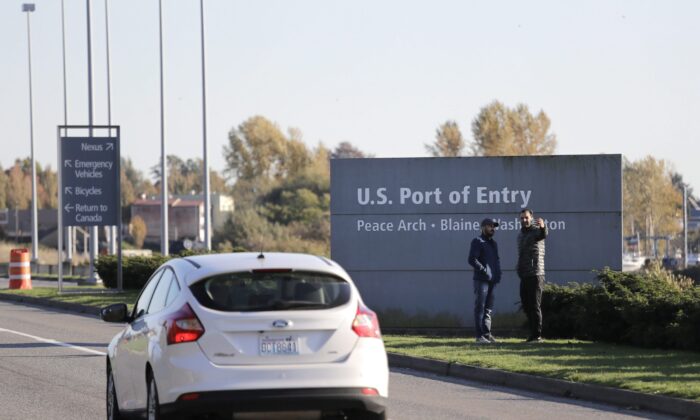US Removes Tariffs on Face Masks and Other Medical Supplies From China
OTTAWA—A woman accused of spying for Russia says there’s nothing to the allegations because her actions ended up helping Canadian interests.
Elena Crenna is asking the Federal Court to overturn an immigration adjudicator’s decision to bar her from Canada over events more than two decades ago.
A hearing on the matter is slated for Wednesday in Ottawa.
The spy saga began in 1994 when Canadian David Crenna hired Elena Filatova—whom he would later marry—as an interpreter and public-relations representative on a humanitarian housing project in Tver, a small city northwest of Moscow.
The initiative involved training Russians to build wood-frame homes, part of an effort to shift the former Soviet Union to a market economy.
An agent from the FSB, a Russian security agency, contacted Filatova to ask questions about the project and David gave her permission to tell the agent anything he wanted to know in the interest of transparency. Elena and the agent met about seven times over a period of years.
In August 1994, David and Elena began a romantic relationship that ended when the housing project concluded in 1996. However, they reconnected in 2008 and were married four years later.
In the interim, Elena had moved to California to work as a nurse and she obtained U.S. citizenship in 2004.
Elena says she never possessed any secret information about the Tver project, nor did she covertly gather material for the Russian security agent.
She came to Canada in September 2013 to live with David, applying for permanent residence under his sponsorship.
Following admissibility hearings, immigration officials gave her approval to stay in 2018. But the federal government appealed.
In its ruling last June, the appeal division of the Immigration and Refugee Board found Elena had “engaged in acts of espionage contrary to Canada’s interests” and issued a deportation order against her.
Adjudicator Annie Lafleur wrote that some may consider Elena’s acts harmless given the socio-political context of post-Soviet Russia in the 1990s, and she was sympathetic to the couple. But she said there must be legal benchmarks “to preserve the integrity of the immigration system, guarantee Canada’s security and on a larger scale, protect Canada’s fundamental values.”
Elena, 58, has quietly left Canada to spend time with relatives in Philadelphia while the legal case plays out, David Crenna said in an interview.
The case has left the couple in disbelief, said Crenna, a former senior political aide and association executive who is now 75 and semi-retired.
“Sanity may prevail and I’m very hopeful that it will. But at the moment it’s conceivable that they could say, ‘Well, let’s grind these people into the ground.’”
In a submission to the Federal Court filed late last month, the government dismisses Elena’s argument that her conversations with the Russian security agent were mundane and pedestrian, saying “the nature of the information is not relevant” when it comes to espionage.
The intelligence sought by the agent in the course of his work and relayed by Elena was “necessarily intended to be used in one way or another by the Russian state,” the submission says.
In her filing with the court, Elena contends the government has not satisfied the threshold in federal immigration law by showing her actions were “against Canada” or “contrary to Canada’s interests.”
Rather, she co-operated with the Russian FSB to ensure the housing project, supported by the Canada Mortgage and Housing Corp. and the World Bank, did not run into any difficulties.
The submission says David Crenna was responsible “for safeguarding the best interests” of the project and its Canadian personnel, and he therefore decided Elena should answer the Russian FSB’s questions “to assure them that the project was benign. And that is all that happened.”
This article is from the Internet:Accused Spy Fights to Overturn Immigration Ruling, Saying She Helped Canada
